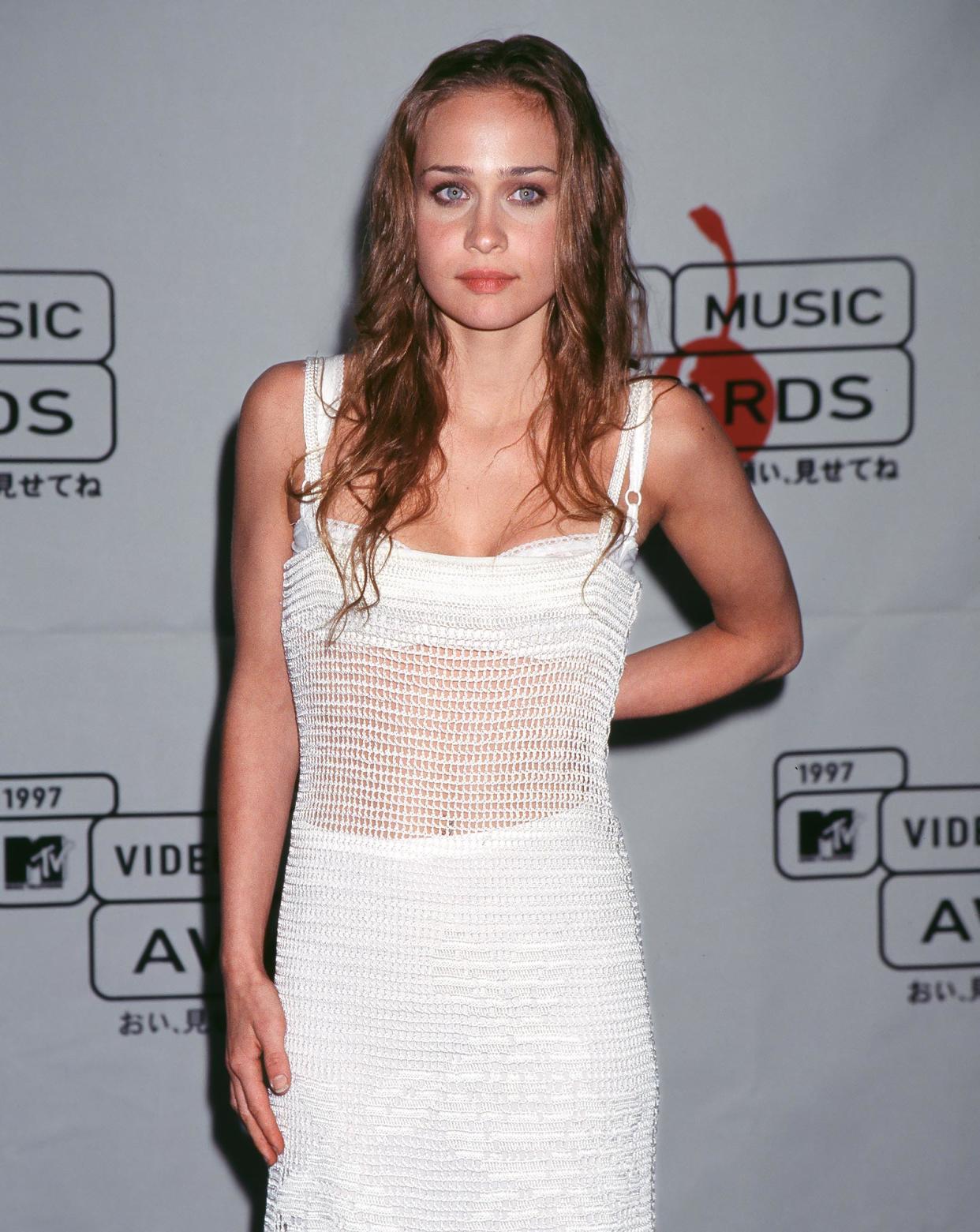Remember When Fiona Apple Called the Music Industry ‘Bulls—t’ at the VMAs?

Fiona Apple has never been one to follow the crowd, and her 1997 acceptance speech at the MTV Video Music Awards is a perfect example of that.
When then-19-year-old Apple took the stage at New York City’s Radio City Music Hall that September evening, she had no remarks prepared. She spoke from the heart while accepting the prize for Best New Artist in a Video for “Sleep to Dream.” (In case you’re making a 1997-themed playlist, Apple beat out Meredith Brooks’ “Bitch,” Hanson’s “MMMBop,” Jamiroquai’s “Virtual Insanity” and The Wallflowers’ “One Headlight.”)
“I didn’t prepare a speech, and I’m sorry, but I’m glad that I didn’t because I’m not gonna do this like everybody else does it,” Apple began. She went on to quote Maya Angelou, apologize to everyone she wasn’t thanking and speak directly to the viewers at home.
“What I want to say is, everybody out there that’s watching — everybody’s that watching this world — this world is bulls—t,” the singer-songwriter said, prompting sporadic cheers from the audience. “You shouldn’t model your life about what you think that we think is cool and what we’re wearing and what we’re saying and everything. Go with yourself. Go with yourself.”

VMAs’ Wildest Moments Through the Years
At the time, Apple was riding high on the success of her 1996 debut album, Tidal, and its successful third single, “Criminal,” which peaked at No. 21 on the Billboard Hot 100 and remains her highest-charting song to date. She closed out her speech by acknowledging her incredulousness at finding herself in a room full of music biz A-listers.
“It’s just stupid that I’m in this world,” she told the crowd. “But you’re all very cool to me, so thank you very much. And I’m sorry for all the people I didn’t thank, but, man. It’s good. Bye.”
Apple’s deviation from the norm didn’t go unpunished, both in 1997 and in the years to come. Rolling Stone listed the VMAs speech as one of Apple’s “Bad, Bad Girl Moments” — a play on lyrics from “Criminal” — in a 2012 article.
The outlet characterized her remarks as reacting to “accolades with unbridled fury” despite Apple being calm and composed during the speech. During a 2005 review of Apple’s third album, Extraordinary Machine, the New Yorker’s Sasha Frere-Jones said that Apple “sounded more insulted than grateful” during the speech.
Everything You Need to Know About the 2024 MTV Video Music Awards: Performers, Nominees and More
Apple doesn’t mind that not everyone understood what she was trying to say.
“I knew that the people who needed to hear it understood it, and f—k the rest of them,” she told The Guardian in December 2020, noting that she had “people around me saying” that the speech made her look “really stupid.”
“That [speech] was a huge moment in my life that I will never, ever regret, and that I have never regretted, no matter how embarrassed I might have been by it at a certain point,” Apple continued. “I knew it was one of those moments where you have to be a really good parent to yourself and go, ‘This is a time you can get out there and just say it. You have to, because if you don’t do it now, you set a precedent for yourself at these things. You shut up your entire life at school, you took all this s—t and you were quiet, look how it made you feel. You’re at this thing right now, this magnified high school class, and now you got a chance to go up and say something? Don’t be shy. No matter how it comes out, just let it come out.’”
VMAs 2024: See the Complete List of Nominations for the MTV Awards Show
More than 20 years later, it’s easy to find retroactive support for the monologue online. After all, Apple was only saying that people should be true to themselves rather than looking to celebrities for guidance. She let everyone in on the secret that the grass isn’t always greener on the other side of the VMAs red carpet, and that anyone who tells you differently might be, well, “bulls—t.”
Apple went on to release four more studio albums after Tidal, the most recent of which, 2020’s Fetch the Bolt Cutters, won two Grammys. (Best Alternative Musical album and Best Rock Performance for “Shameika.”) She still tells it like it is, and she still wants people to be unburdened by societal norms or anything else that keeps them down.
“Fetch your tool of liberation,” Apple told NPR in 2020 while discussing Fetch the Bolt Cutters’ title. “Set yourself free.”
